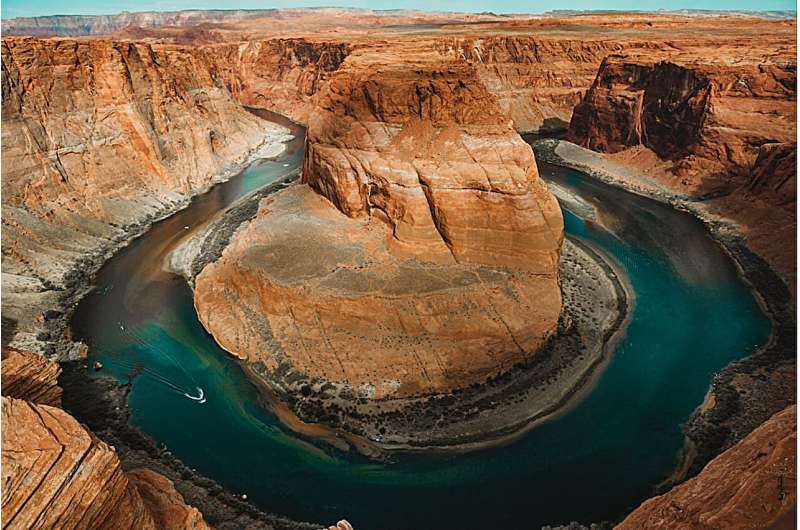
The Colorado River Basin provides freshwater to more than 40 million people within the semi-arid southwestern United States, including major cities such as Las Vegas and Los Angeles. However, between 2000 and 2021 the basin experienced a megadrought (a severe drought lasting multiple decades), which researchers have suggested likely would not have occurred if it were not for anthropogenic climate change. In particular, during 2020 and 2021, the river basin recorded the driest 20-month period since 1895 and the lowest river flow since 1906.
Dr. Benjamin Bass and colleagues at the University of California aimed to identify how precipitation and runoff within the basin have changed since the 1880s, in line with a 1.5°C increase in temperature over the same period. New research, published in Water Resources Research, identified a 10.3% decrease in runoff within the basin as a direct result of anthropogenic warming and vegetation changes in the landscape, meaning available water resources to support the local population have declined 2.1 km3.
Furthermore, the scientists found that snowpack regions were significantly impacted by aridification, exacerbating the decline in runoff to twice that of neighboring areas. Though snowpack regions constitute only 30% of the Colorado River drainage basin, the aridification has led to an 86% decrease in runoff.
This is likely to worsen due to albedo feedback, whereby the declining snow reduces the lighter “white” snow surface to reflect heat from solar insolation, instead exposing more of the land to absorb heat and ultimately increasing temperature further which causes more snow to melt and so the feedback loop continues.
Given the Colorado River Basin’s mean annual runoff is 21.2 km3, the loss of ~10% its volume over the last 140 years is significant. As CO2 levels and temperatures are predicted to rise in the future, the rate of water loss could enhance further, posing consequences for the millions who rely upon its waters every day.